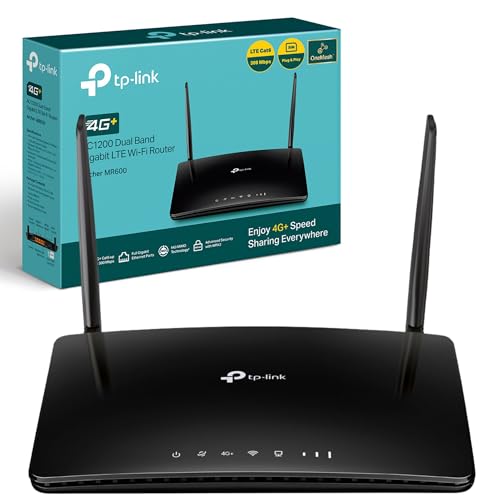Introduction to 4G Routers: What We Need to Know
Understanding 4G Routers
A 4G router connects to the mobile data network, providing internet access to devices like smartphones, laptops, and tablets. It’s particularly useful in areas where fixed broadband services are unavailable or unreliable. When we use a 4G router, we harness the power of 4G LTE technology, which is designed to offer faster speeds and lower latency compared to older generations like 3G. This makes it ideal for activities that require a stable connection, such as streaming videos or participating in video calls.
Why Choose a 4G Router?
We often find ourselves in need of portable, reliable internet, especially when travelling or living in rural locations. A 4G router can provide an immediate internet solution, allowing multiple devices to connect without hassle. By using mobile broadband, we are no longer tethered to a fixed-line connection, meaning we can enjoy high-speed internet access practically anywhere there’s mobile coverage. Understanding the value of mobility and flexibility that 4G routers offer is essential when deciding if this technology fits our needs.
Key Features to Consider When Choosing a 4G Router
Speed and Performance
Speed is a crucial consideration for any router. When looking at 4G routers, we need to evaluate their maximum download and upload speeds, which can vary significantly between models. Ideally, we want a router that supports high LTE categories, ensuring that we can achieve near-optimal performance even in areas with weaker signals. For instance, if we plan on streaming or gaming, selecting a router capable of higher speeds will enhance our experience significantly.
Connectivity Options
A good 4G router should offer multiple connectivity options. This often includes Ethernet ports for wired connections, which can provide stability for devices like gaming consoles or PCs. Additionally, we should look for routers with dual-band Wi-Fi capabilities, allowing us to connect to both 2.4 GHz and 5 GHz bands. This feature helps manage different needs: the 2.4 GHz band offers broader coverage, while the 5 GHz band generally provides faster speeds over shorter distances.
Battery Life and Portability
For those who need internet on the go, the portability and battery life of a 4G router are essential features. Battery-operated models mean we can easily take them on trips or use them during power outages. We recommend searching for models that provide long battery life, which allows for extended usage without needing to recharge frequently. Additionally, consider the size and weight of the router, as compact options are easier to pack and transport.
Security Features
Security should always be a priority when choosing any internet-connected device. Most 4G routers come equipped with standard security protocols like WPA2 encryption. However, we should also look for routers that support features like VPN compatibility, guest network access, and firewall options, ensuring that our network remains secure while allowing for flexibility in usage.
How to Set Up Your 4G Router for Optimal Performance
Initial Setup Steps
Getting started with your 4G router is straightforward. First, insert your SIM card into the router as directed by the manufacturer’s guide. Next, power the device on and connect it to a power source. We will typically need to connect to the router’s default Wi-Fi network via our computer or mobile device to access its configuration settings.
Configuration for Best Performance
After connecting to the router, we can enter its web interface using a provided IP address. It’s important to change the default Wi-Fi name and password for security. Adjusting settings such as selecting the appropriate band and channel can improve performance based on our environment. If we live in an area with interference, picking less crowded channels can provide a more stable connection.
Optimising Placement
Placement of the router can significantly impact signal strength and overall performance. We want to place the router in a central location, away from objects that could obstruct the signal, such as walls or appliances. In cases where the signal is weak, external antennas or signal boosters can enhance reception, ensuring we maintain a strong connection even in challenging environments.
Comparing Top 4G Routers: Our Recommended Picks
High-Performance Options
For those who require top speeds and advanced features, we recommend looking into high-performance 4G routers that support the latest LTE bands and come equipped with multiple antennas for better connectivity. These routers usually offer great range and speed, making them ideal for homes with multiple users or heavy internet usage.
Budget-Friendly Choices
If we’re on a budget, many excellent options deliver solid performance without breaking the bank. These routers usually have essential features and reliability that cater to casual internet usage, such as browsing and streaming in limited quantities. It’s worth noting that even budget models can provide reasonable speeds and adequate coverage.
Portable Routers for Travel
For frequent travellers, compact and lightweight 4G routers designed for portability can be a game changer. These routers often have built-in batteries, allowing us to maintain connectivity on the go. Choosing a router that supports multiple SIM cards can also be beneficial, as it enables us to switch between service providers based on our location.





























